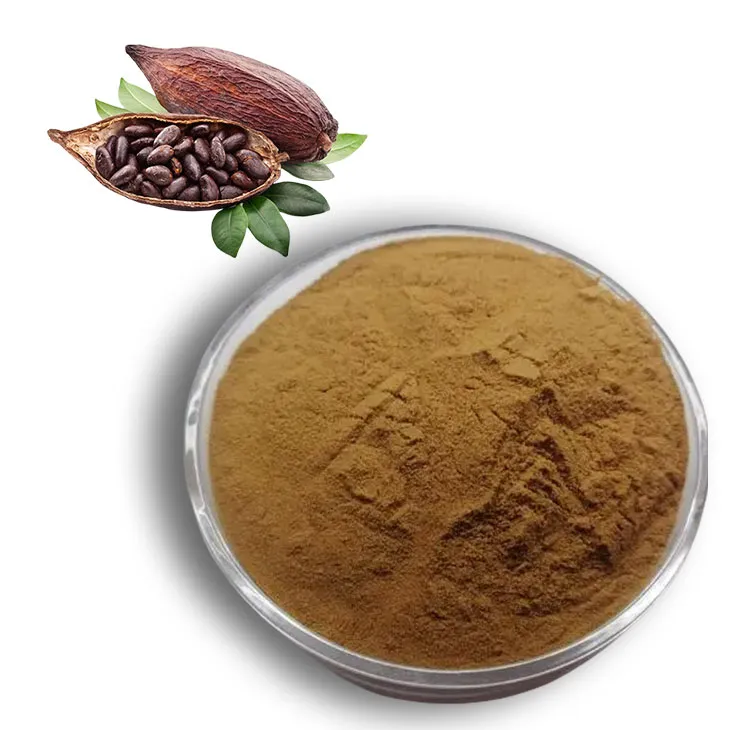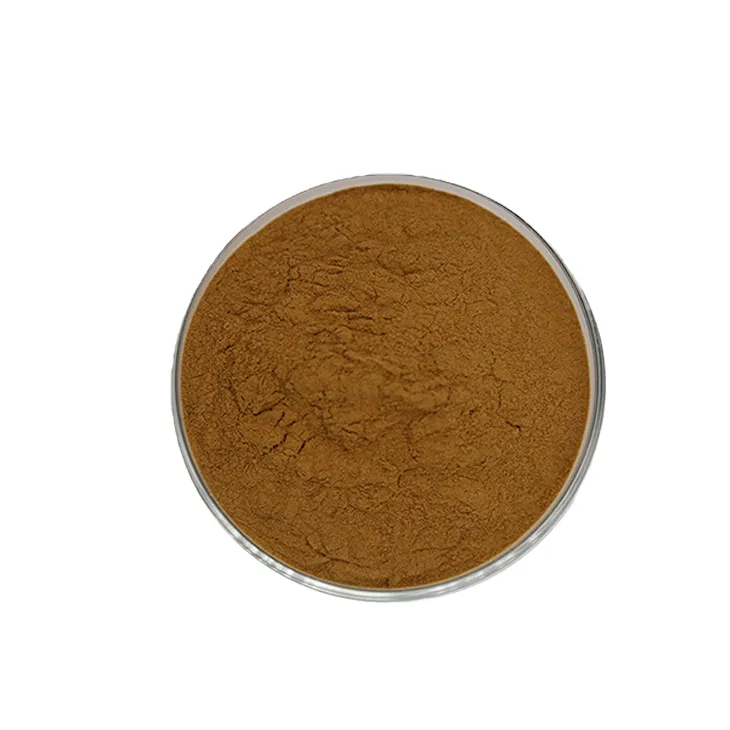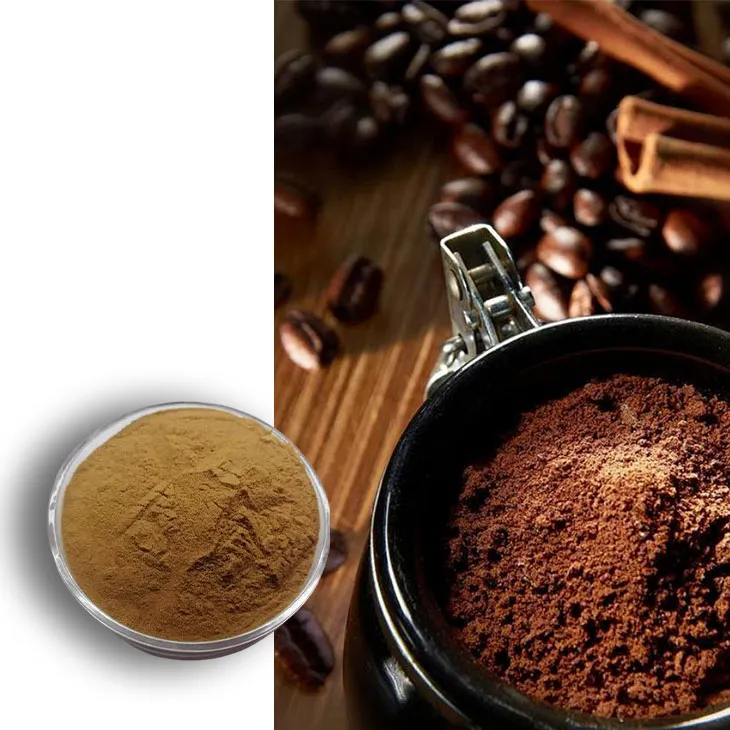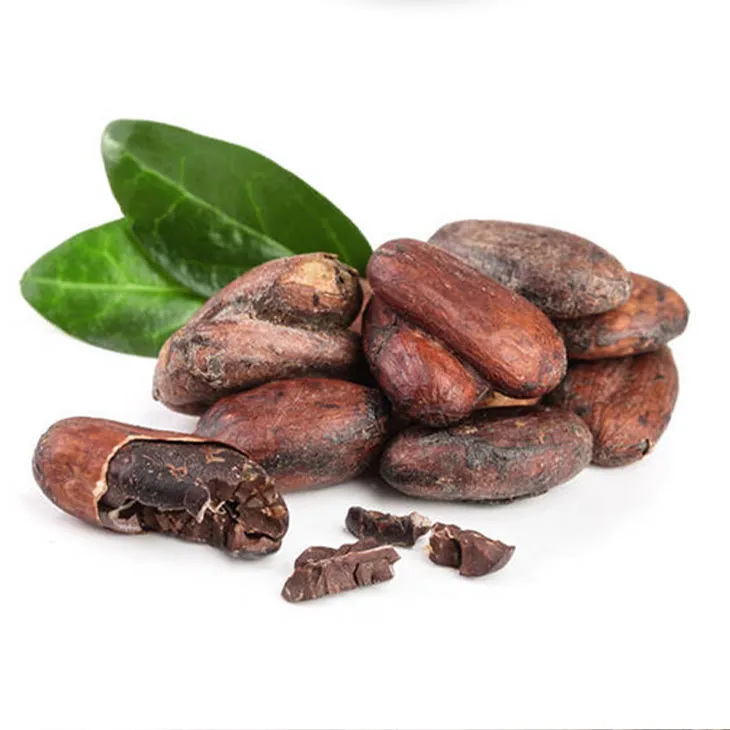- 0086-571-85302990
- sales@greenskybio.com
Application of Cocoa Extract in Skin Care.
2024-11-11

1. Introduction
In recent years, the beauty and skincare industry has been constantly exploring natural ingredients with various beneficial properties for the skin. Cocoa Extract has emerged as a promising ingredient in this regard. Derived from the cocoa bean, which is well - known for its role in chocolate production, Cocoa Extract has much more to offer than just a delicious taste. It contains a rich blend of bioactive compounds that can have a significant impact on skin health and appearance.

2. Composition of Cocoa Extract
2.1 Flavonoids
One of the most important components of cocoa extract is flavonoids. Flavonoids are a large group of polyphenolic compounds that are renowned for their antioxidant capabilities. In cocoa, flavonoids such as catechins, epicatechins, and procyanidins are present in significant amounts. These flavonoids play a crucial role in skincare.2.2 Fatty Acids
Cocoa extract also contains fatty acids, which are essential for maintaining the skin's lipid barrier. The lipid barrier of the skin is crucial for preventing water loss and protecting the skin from external irritants. Fatty acids like oleic acid, palmitic acid, and stearic acid in cocoa extract contribute to the skin's hydration and overall health.2.3 Minerals
Minerals such as magnesium, iron, and zinc are also found in cocoa extract. These minerals are involved in various enzymatic reactions in the skin cells. For example, zinc has anti - inflammatory properties and can help in wound healing, while magnesium is important for cellular metabolism.
3. Antioxidant Properties
3.1 Combating Free Radicals
The antioxidant properties of cocoa extract, mainly due to its flavonoid content, are of great significance in skincare. Free radicals are unstable molecules that are formed in the body as a result of various factors such as environmental pollution, UV radiation, and normal metabolic processes. These free radicals can cause damage to skin cells by oxidizing important cellular components like DNA, proteins, and lipids. By donating electrons to free radicals, the flavonoids in cocoa extract neutralize them, thereby reducing the oxidative stress on the skin. This, in turn, helps to prevent premature aging signs such as wrinkles, fine lines, and dull skin.3.2 Protecting Skin from UV Damage
Although cocoa extract cannot replace sunscreen, it can provide an additional layer of protection against UV - induced damage. The antioxidants in cocoa extract can scavenge the free radicals that are generated upon UV exposure. UV radiation can cause DNA damage in skin cells, leading to mutations and an increased risk of skin cancer. By reducing the oxidative stress caused by UV rays, cocoa extract helps to maintain the integrity of the skin cells and reduces the long - term damage associated with sun exposure.
4. Anti - Inflammatory Properties
4.1 Soothing Irritated Skin
Cocoa extract has notable anti - inflammatory properties. Skin irritation can be caused by a variety of factors, including exposure to harsh chemicals, allergens, or excessive dryness. The anti - inflammatory compounds in cocoa extract can help to calm down the inflamed skin. They work by inhibiting the production of inflammatory mediators such as cytokines and prostaglandins. This results in a reduction of redness, swelling, and itching, making the skin look and feel more comfortable.4.2 Treating Skin Conditions
For individuals with certain skin conditions like eczema or psoriasis, which are characterized by chronic inflammation, cocoa extract may offer some relief. By reducing the inflammatory response in the skin, it can potentially improve the symptoms associated with these conditions. However, it should be noted that cocoa extract is not a substitute for medical treatment but can be used as an adjunctive therapy.
5. Moisturizing Effects
5.1 Maintaining Skin Hydration
As mentioned earlier, the fatty acids in cocoa extract are beneficial for the skin's lipid barrier. A healthy lipid barrier is essential for retaining moisture in the skin. When the lipid barrier is intact, water loss from the skin is minimized, and the skin remains hydrated. Cocoa extract can help to improve the skin's natural moisturizing ability, leaving the skin soft and supple.5.2 Nourishing the Skin
In addition to maintaining hydration, cocoa extract also nourishes the skin. The combination of fatty acids, vitamins, and minerals in cocoa extract provides essential nutrients to the skin cells. This nourishment promotes healthy skin cell turnover, which is important for maintaining a youthful and radiant complexion.6. Anti - Acne Effects
6.1 Controlling Sebum Production
Excessive sebum production is one of the main factors contributing to acne. Cocoa extract has been shown to regulate sebum production. It helps to balance the skin's oil levels, preventing the pores from becoming clogged with excess oil. By controlling sebum production, cocoa extract can reduce the occurrence of acne breakouts.6.2 Antibacterial Properties
Some of the compounds in cocoa extract possess antibacterial properties. Acne is often associated with the overgrowth of the bacterium Propionibacterium acnes on the skin. The antibacterial action of cocoa extract can help to inhibit the growth of this bacterium, further reducing the risk of acne formation.7. Incorporating Cocoa Extract into Skincare Products
7.1 Face Creams and Moisturizers
Many face creams and moisturizers now include cocoa extract as an ingredient. These products are designed to provide hydration, antioxidant protection, and anti - aging benefits to the skin. When applied to the face, they can improve the skin's texture and appearance.7.2 Serums
Cocoa - extract - based serums are also becoming popular. Serums are concentrated formulations that can penetrate deeper into the skin. A cocoa extract serum can deliver a high dose of antioxidants and other beneficial compounds directly to the skin cells, providing more targeted skincare benefits.7.3 Masks
Facial masks containing cocoa extract are used for intensive treatment. These masks can be left on the skin for a specific period, allowing the cocoa extract to work its magic. They are often used to soothe irritated skin, provide hydration, or give an instant glow to the skin.8. Precautions and Considerations
8.1 Allergic Reactions
Although cocoa extract is generally considered safe for use in skincare, some individuals may be allergic to it. People with known allergies to chocolate or cocoa products should be cautious when using skincare products containing cocoa extract. Allergic reactions may include skin rashes, itching, or swelling.8.2 Quality and Source of Cocoa Extract
The quality of cocoa extract can vary depending on its source and the extraction method used. It is important to choose skincare products that use high - quality cocoa extract. High - quality cocoa extract is more likely to retain its beneficial properties and be free from contaminants.9. Conclusion
Cocoa extract has a wide range of applications in skincare. Its antioxidant, anti - inflammatory, moisturizing, and anti - acne properties make it a valuable ingredient in various skincare products. However, as with any skincare ingredient, it is important to be aware of potential allergic reactions and ensure the quality of the product. With further research and development, cocoa extract is likely to play an even more significant role in the future of skincare.
FAQ:
1. What are the main antioxidants in cocoa extract?
The main antioxidants in cocoa extract are flavonoids. Flavonoids play a crucial role in combating free radicals in the skin, which helps in reducing signs of skin aging.
2. How does cocoa extract soothe irritated skin?
Cocoa extract has anti - inflammatory properties. These properties help to calm down the inflammation in the skin, thereby soothing irritated skin.
3. Can cocoa extract really moisturize the skin?
Yes, cocoa extract can contribute to skin moisturization. It contains certain components that can help improve the skin's moisture - retaining ability, leaving the skin feeling hydrated.
4. What is the mechanism behind cocoa extract's anti - acne effect?
The anti - inflammatory properties of cocoa extract play a part in its anti - acne effect. By reducing inflammation in the skin, it can help prevent and treat acne. Additionally, its antioxidant properties may also help in maintaining a healthy skin environment which is less conducive to acne formation.
5. Is cocoa extract suitable for all skin types?
Generally, cocoa extract is suitable for most skin types. However, those with extremely sensitive skin may need to do a patch test first, as although it has many beneficial properties, individual skin reactions can vary.
6. How can cocoa extract be incorporated into a skincare routine?
Cocoa extract can be found in various skincare products such as creams, lotions, and masks. You can incorporate products containing cocoa extract into your normal skincare routine. For example, use a cocoa - extract - containing cream after cleansing and toning in the morning and evening.
Related literature
- The Role of Cocoa Extract in Cosmetic Dermatology"
- "Antioxidant and Skin - Beneficial Properties of Cocoa Extract"
- "Cocoa Extract: A Natural Ingredient for Skin Health"
- ▶ Hesperidin
- ▶ Citrus Bioflavonoids
- ▶ Plant Extract
- ▶ lycopene
- ▶ Diosmin
- ▶ Grape seed extract
- ▶ Sea buckthorn Juice Powder
- ▶ Fruit Juice Powder
- ▶ Hops Extract
- ▶ Artichoke Extract
- ▶ Mushroom extract
- ▶ Astaxanthin
- ▶ Green Tea Extract
- ▶ Curcumin
- ▶ Horse Chestnut Extract
- ▶ Other Product
- ▶ Boswellia Serrata Extract
- ▶ Resveratrol
- ▶ Marigold Extract
- ▶ Grape Leaf Extract
- ▶ New Product
- ▶ Aminolevulinic acid
- ▶ Cranberry Extract
- ▶ Red Yeast Rice
- ▶ Red Wine Extract
-
Europen Bilberry Extract
2024-11-11
-
Bayberry Extract
2024-11-11
-
Stevia Extract
2024-11-11
-
Peppermint Extract Powder
2024-11-11
-
Natural grape seed extract
2024-11-11
-
Agaricus Blazei Extract
2024-11-11
-
Oyster Mushroom Extract Powder
2024-11-11
-
Bitter Melon Extract
2024-11-11
-
Eyebright Extract
2024-11-11
-
Moringa powder
2024-11-11





















